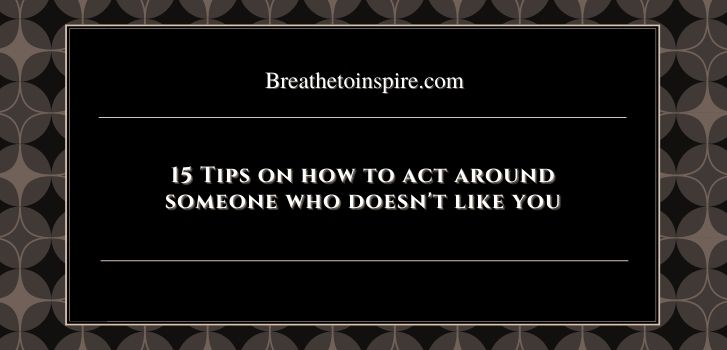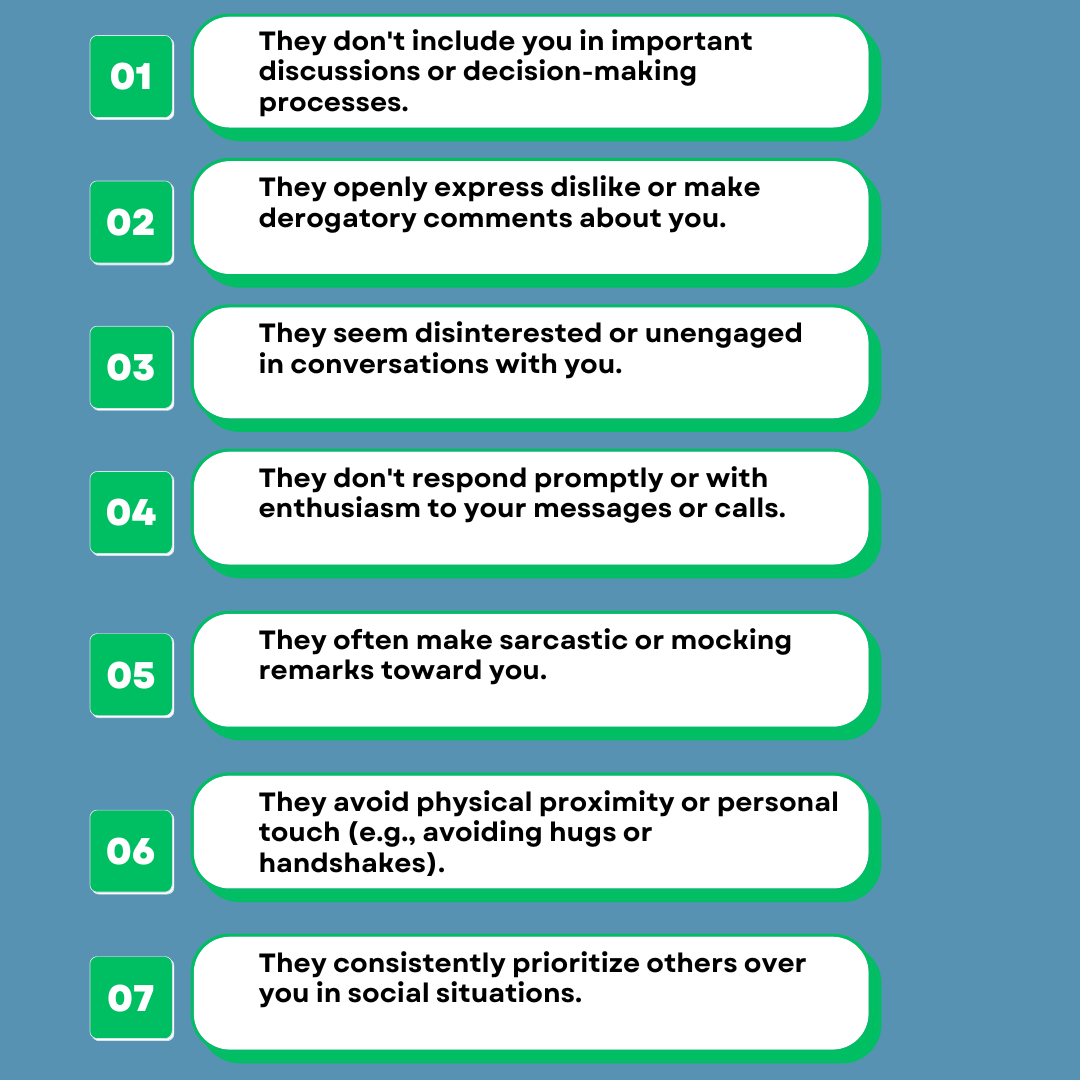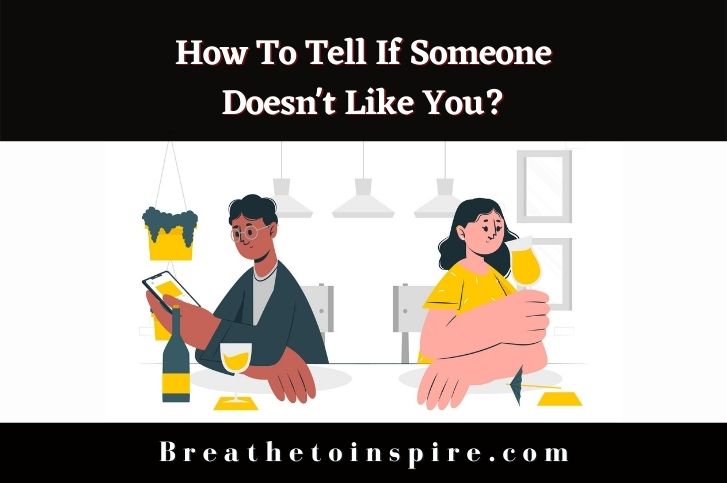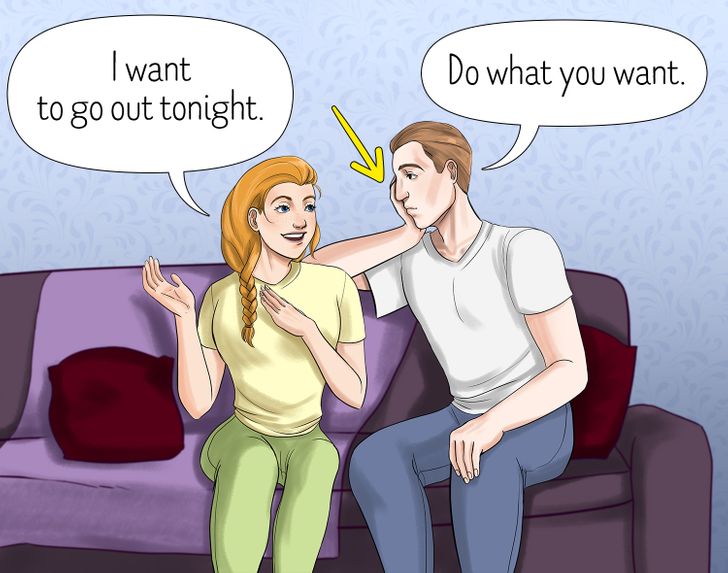How To Act Around Someone Who Doesn't Like You

Imagine walking into the office kitchen, the aroma of freshly brewed coffee filling the air. You offer a cheerful "Good morning!" only to be met with a curt nod and averted eyes. It's an interaction that leaves a lingering sense of unease, a silent acknowledgment that, for whatever reason, not everyone is your biggest fan.
Navigating social dynamics can be tricky, especially when faced with the reality of someone disliking you. The key is to maintain professionalism and protect your own well-being. This article offers practical strategies for gracefully interacting with someone who doesn't seem to appreciate your presence, focusing on respectful communication and personal boundaries.
Understanding the Landscape
It's human nature to want to be liked, but it's equally important to accept that universal adoration is an unrealistic expectation. Personalities clash, misunderstandings arise, and sometimes, despite our best efforts, we simply don't resonate with everyone we encounter. According to a study published in the Journal of Personality and Social Psychology, interpersonal conflict is a normal part of social life.
Before jumping to conclusions, try to objectively assess the situation. Is it a genuine dislike, or could there be another explanation? Perhaps the person is stressed, having a bad day, or simply introverted. Avoid making assumptions and focus on observable behaviors rather than perceived intentions.
Strategies for Interaction
The foundation of any successful interaction, even with someone who dislikes you, is respect. Treat them with the same courtesy and professionalism you would extend to anyone else. This doesn't mean you have to become best friends, but it does mean maintaining a civil and polite demeanor.
Keep interactions brief and focused on the task at hand. Avoid unnecessary small talk or personal disclosures. If you work together, concentrate on collaborating effectively to achieve shared goals. According to organizational psychologist, Dr. Sarah Wells, "Maintaining a professional distance can minimize potential conflict and create a more manageable working relationship."
Communication is Key
Clear and concise communication is crucial. When communicating with someone who dislikes you, be direct and avoid ambiguity. Use "I" statements to express your needs and feelings without placing blame. For example, instead of saying "You always ignore my ideas," try "I feel like my ideas aren't being heard."
Listen actively when the other person is speaking, even if you disagree with them. Show genuine interest in understanding their perspective, even if you don't agree with it. Active listening demonstrates respect and can help de-escalate potential conflict.
If a conversation starts to become heated or unproductive, don't hesitate to disengage. Politely excuse yourself and suggest revisiting the topic at a later time. "I appreciate your input, but I'm not sure we're going to come to an agreement right now. Let's revisit this later."
Protecting Your Well-being
It's important to remember that someone else's dislike of you is ultimately about them, not you. While it's natural to feel hurt or frustrated, don't internalize their negativity. Focus on your strengths, accomplishments, and the positive relationships in your life.
Set boundaries to protect your emotional well-being. Limit your exposure to the person if possible, and avoid engaging in gossip or negativity about them. Surround yourself with supportive friends and colleagues who appreciate you for who you are.
If the situation escalates or becomes hostile, don't hesitate to seek help. Talk to a trusted friend, family member, or HR representative. Document any instances of harassment or unprofessional behavior. Remember, you have the right to a safe and respectful work environment.
A Path Forward
Dealing with someone who dislikes you is never easy, but it's a reality that most of us will face at some point in our lives. By focusing on respect, communication, and personal boundaries, you can navigate these interactions with grace and professionalism. The goal isn't to change the other person's feelings, but rather to manage the situation in a way that protects your own well-being and allows you to thrive.
Ultimately, remember that you can't control how others feel about you, but you can control how you react. Focus on being the best version of yourself, and let your actions speak louder than any negativity you might encounter. Your inner peace is worth more than any external validation.


















